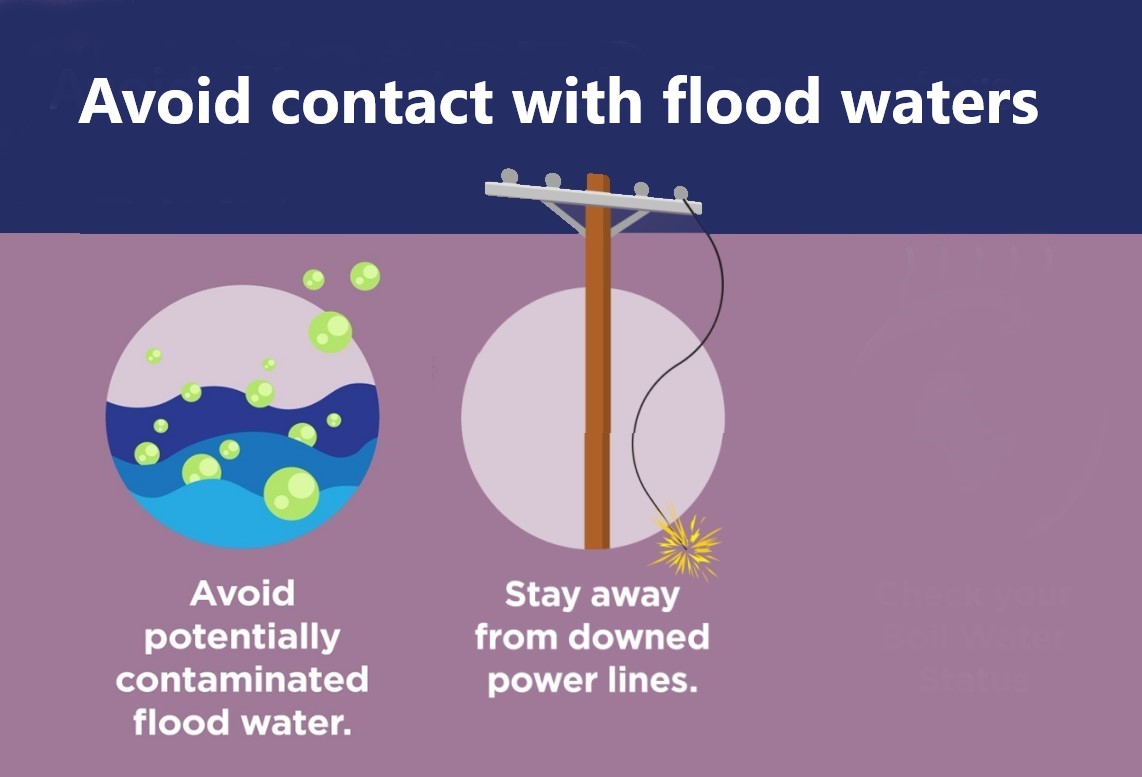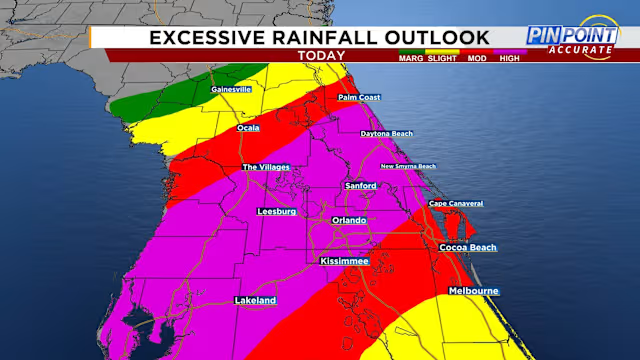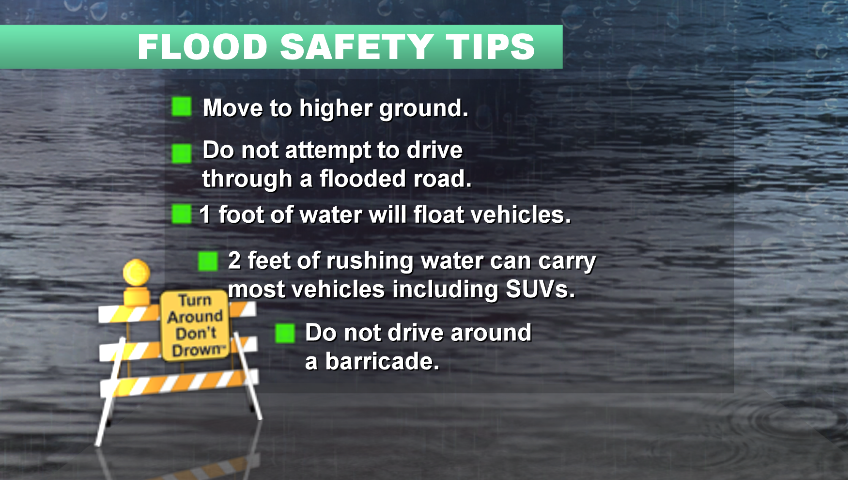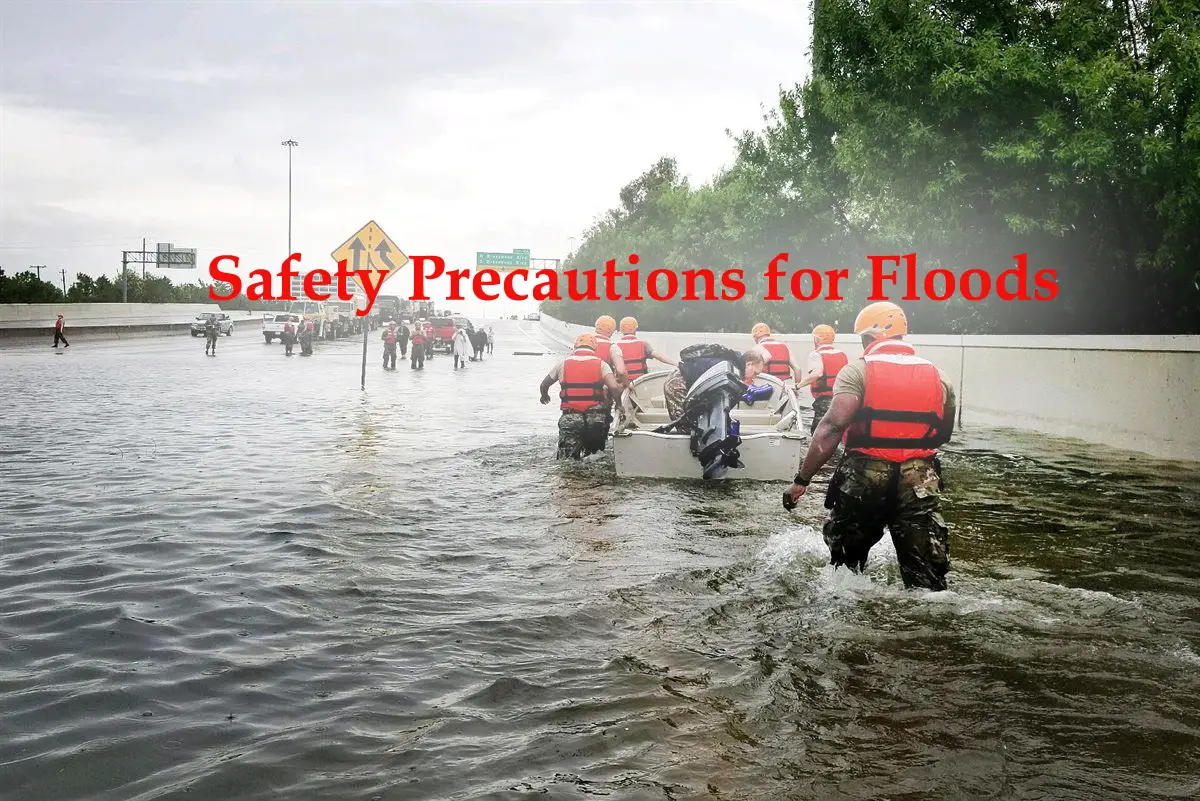Florida residents are no strangers to hurricanes and the dangers they bring. Among the many risks hurricanes pose, flooding is one of the most devastating. With the recent warnings surrounding Hurricane Milton, it’s essential to take the necessary precautions to protect yourself, your loved ones, and your property from potential flooding. By following a well-thought-out plan, you can significantly reduce the dangers associated with hurricane-induced floods.
In this article, we’ll break down the key precautions you should take to stay safe during Hurricane Milton and its potential flooding in Florida.
Understanding the Risks of Hurricane Milton Flooding
Hurricanes like Milton can bring intense rainfalls, strong winds, and storm surges, which often lead to severe flooding. Florida, with its flat terrain and proximity to large bodies of water, is particularly vulnerable to flooding during hurricanes. It’s important to understand the different types of flooding that can occur:
- Storm Surge Flooding: When a hurricane pushes seawater onto the land, it can flood coastal areas quickly. This type of flooding is particularly dangerous as it can happen with little warning.
- River Flooding: Heavy rains can cause rivers and streams to overflow, flooding areas far from the coast.
- Flash Flooding: Intense rainfall in a short period can overwhelm drainage systems, causing fast-moving floods in both urban and rural areas.
Knowing these risks is crucial in understanding why it’s essential to prepare thoroughly for Hurricane Milton’s potential impacts.
1. Create a Hurricane and Flood Safety Plan
One of the first steps to prepare for Hurricane Milton is to have a well-thought-out safety plan. This plan should include:
- Evacuation Routes: Know your community’s evacuation routes and have a plan for where you’ll go if you need to leave your home.
- Communication Plan: Set up a way to stay in touch with family and friends during the storm. Have backup communication methods, such as a battery-powered radio or satellite phone.
- Emergency Contacts: Keep a list of emergency numbers, including local authorities, hospitals, and utility companies, readily available.
Your safety plan is your first line of defense. Discuss it with your family to ensure everyone knows what to do during the hurricane and any flooding events.

2. Assemble an Emergency Kit
Before Hurricane Milton arrives, make sure you have an emergency kit ready. This kit should include essential items that will help you survive during and after the storm. Some key items to include are:
- Water: Have at least one gallon of water per person per day for at least three days.
- Non-Perishable Food: Stock up on canned goods, protein bars, and other food items that don’t require refrigeration or cooking.
- First Aid Supplies: Include bandages, antiseptic, any necessary medications, and basic first aid equipment.
- Flashlights and Batteries: Power outages are common during hurricanes, so ensure you have enough light sources and backup batteries.
- Important Documents: Store important papers, such as insurance policies, identification, and medical records, in a waterproof container.
- Cash: ATMs and credit card systems might be down after the storm, so it’s wise to have cash on hand.
By gathering these items in advance, you can avoid the last-minute rush and ensure you’re well-prepared for potential flooding during Hurricane Milton.
3. Protect Your Home from Flooding
Taking proactive steps to protect your property can help reduce damage from floodwaters. Here’s what you can do to safeguard your home:
- Elevate Important Items: Move valuable items and electronics to higher ground, especially if you live in a flood-prone area or your home has a basement.
- Use Sandbags: Placing sandbags around doors and windows can help prevent water from entering your home.
- Seal Gaps: Ensure there are no cracks or gaps in your home’s foundation, windows, or doors where water could seep in.
- Install Flood Vents: If possible, consider installing flood vents in your home. These allow floodwaters to flow through your property, reducing structural pressure and preventing significant damage.
- Check Gutters and Drains: Make sure your gutters, drains, and downspouts are clear of debris so that water can flow away from your home easily.
These preparations can minimize the impact of flooding and help you recover more quickly after the storm.
4. Pay Attention to Weather Alerts
Staying informed is crucial when dealing with hurricanes. Pay close attention to local weather alerts, and follow guidance from authorities. Here’s how you can stay up to date:
- NOAA Weather Radio: A battery-powered or hand-crank NOAA weather radio can keep you informed if power and cell service go out.
- Alert Apps: Many smartphones have emergency alert features that provide real-time updates on weather conditions.
- Local News: Keep an eye on local news stations for up-to-date information on the hurricane’s progress and any evacuation orders.
Following these alerts will give you the time you need to take action and protect yourself from Hurricane Milton’s flooding risks.
5. Know Your Flood Zone and Evacuation Orders
Florida is divided into flood zones, which indicate the likelihood of flooding in different areas. Understanding which flood zone you live in is essential for planning:
- Flood Zone A: These areas are at a high risk of flooding during hurricanes and are often the first to be evacuated.
- Flood Zone B: These areas have a moderate risk of flooding but can still experience significant water accumulation during storms.
- Flood Zone X: These areas have a low risk of flooding but are not immune to heavy rains and storm surges.
If your area falls within a high-risk flood zone, be prepared to evacuate when authorities issue an order. Never ignore evacuation orders, as staying behind can put your life in danger.

6. Prepare for Power Outages
Flooding from Hurricane Milton can cause power outages that last for days or even weeks. It’s essential to prepare for extended periods without electricity:
- Backup Power: Consider investing in a generator to power essential appliances, such as refrigerators and medical equipment.
- Alternative Cooking Methods: Have a camping stove or grill that can be used to cook meals if your stove or oven becomes unusable.
- Battery Backups: Keep batteries on hand to power flashlights, radios, and other critical devices.
Power outages can be challenging, but with the right preparations, you can stay comfortable and safe until electricity is restored.
7. Evacuate When Necessary
If authorities issue an evacuation order due to the potential for severe flooding, it’s crucial to leave as soon as possible. Delaying your evacuation can put you at risk of getting trapped by rising floodwaters. When evacuating:
- Pack Essential Items: Bring your emergency kit, personal identification, medications, and any other essentials you’ll need while away from home.
- Secure Your Home: Before leaving, turn off your electricity, water, and gas to prevent any accidents while you’re away.
- Leave Early: Evacuating before the storm hits ensures you’ll avoid traffic jams and dangerous conditions on the roads.
Evacuation might seem inconvenient, but it’s the best way to ensure your safety when faced with the possibility of severe flooding.
8. Stay Away from Floodwaters
Once Hurricane Milton passes, it’s tempting to venture outside and assess the damage. However, floodwaters can be extremely dangerous. Here’s why you should stay clear:
- Contaminated Water: Floodwaters may contain sewage, chemicals, and other harmful contaminants.
- Hidden Hazards: Fast-moving water can conceal debris, downed power lines, and even sinkholes.
- Drowning Risk: It only takes a few inches of water to knock a person off their feet or sweep away a car. Never walk or drive through floodwaters.
Waiting for the all-clear from local authorities is essential before returning to any flooded areas.
9. Document Damage for Insurance Claims
If your home or property suffers flood damage from Hurricane Milton, it’s important to document everything for insurance purposes. Here’s how to handle it:
- Take Photos: Before cleaning up, take detailed photos of the damage to your property.
- Contact Your Insurance Company: Notify your insurer as soon as possible to start the claims process.
- Save Receipts: If you need to purchase supplies for repairs, keep all receipts to provide to your insurance company.
By carefully documenting the damage, you’ll be in a better position to get the financial support you need to recover.

10. Seek Shelter in a Safe Location
If flooding is severe and you cannot evacuate, seek shelter in the highest part of your home, preferably an upper floor. Avoid basements or lower levels, as these are the first to flood. Keep emergency supplies with you, and stay tuned to local updates.
Conclusion: Preparation is Key for Hurricane Milton Flooding
Hurricane Milton presents a serious flooding risk for Florida, but with the right precautions, you can minimize the danger to yourself, your family, and your home. By preparing an emergency kit, securing your property, staying informed, and evacuating when necessary, you’ll be ready to weather the storm.

